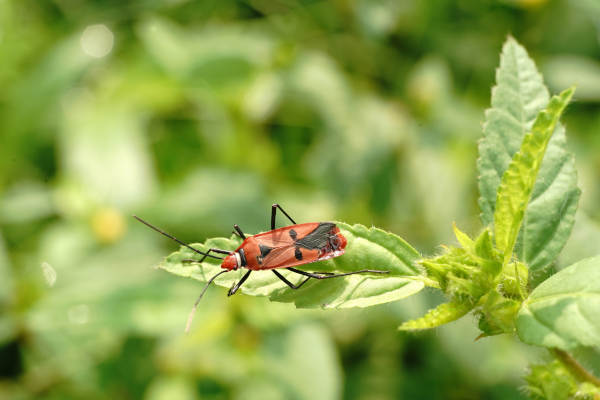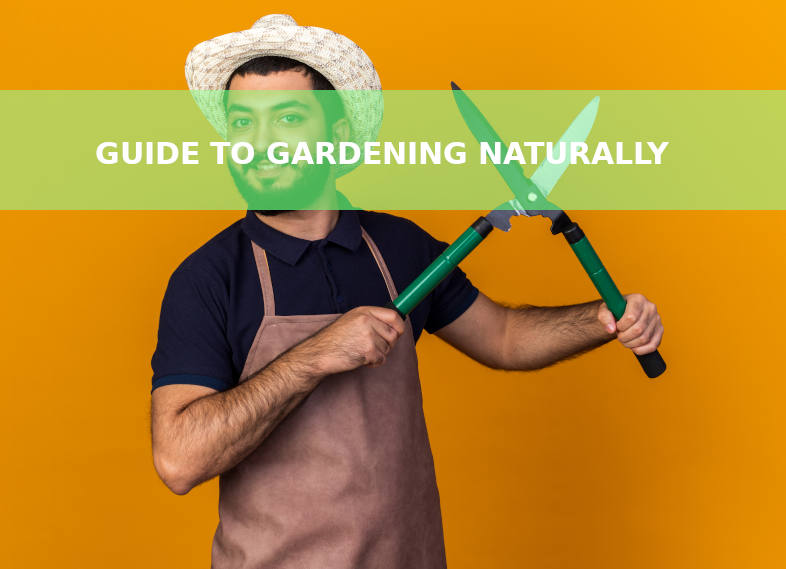Gardening feels good. It feels even better to garden when you are improving your local ecosystem. Natural gardening increases biodiversity in your backyard. With a little love and attention, a natural garden will help improve your local ecosystem.

What is Natural Gardening?
Natural gardening is also known as organic horticulture or organic gardening. The principle of organic horticulture is the science of growing a garden by following organic principles when it comes to soil management, pesticides, and the preservation of heirloom plants.
Organic Gardening Practices
The basic definition of at-home organic gardening according to NC State University is gardening without synthetic fertilizers and pesticides. It also encompasses the care for the garden as an ecosystem. Keeping in mind the bugs, weeds, and animals that live in the garden to make it grow.
Steps to Start Your Natural Garden
- Natural Soil Management
Managing the type of soil you use, what is planted in the soil, and the quality of soil is the first step to gardening naturally. Without the use of synthetic fertilizers, you should put greater weight on making sure you have the right soil type and drainage to support the plant you are growing.
Instead of using synthetic fertilizers, you can use natural options like manure or compost. Any organic soil mix will use a natural product to help feed your plants.
You can improve acidic soil with limestone. You can get a soil test online.
A great way to keep the nutrients in your soil is to rotate your plants. Each plant requires different nutrients from your soil. Rotation will ensure your nutrients are not depleted and the soil will stay balanced.
To keep weeds out of the garden use bark or mulch over your topsoil. Dense planting will also decrease weed growth.
- Choosing Heirloom Plants
Heirloom plants are plants that were grown before the introduction of large-scale agriculture. Heirloom planting is a more diverse way to plant. It requires the seeds or cuttings of a plant that has not been bred or mixed to make it pest-resistant or improve growth habits.
There are many pro’s and con’s to heirloom plants some of the biggest reasons to choose heirloom is:
- Taste — fruits & vegetables
- Open pollinators — you save your own seed to replace each year
- Nutrition
- Diversity options
It’s important to focus on native species when thinking about what to plant in your garden.
Choosing a native species allows that plant to grow naturally in the available climate without the need for excess additives. It also increases the chance of biodiversity in your backyard.
Native plants are the right choice for the available sun, soil, temperature, bugs, and wildlife.
- Pesticide-Free Gardening
A natural garden doesn’t use synthetic pesticides. Organic gardeners must think about the ecosystem as a whole. It is not about removing pests completely, it is more about balancing pests, so they do the least amount of harm.
Here are a few tips to help naturally control pests in your garden.
- Plant and place items in your garden that will entice predators to naturally remove pests for you. Predators include bats, spiders, lizards, and toads. This could include water features or beneficial plants that feed these predators.
- Use companion planting. Look for different plants that do not get infected or eaten by the same pests. That way if you get an infestation it will not harm or take out your entire garden. Some plants offer natural repellents to their companion plants like basil and tomatoes. Basil keeps aphids and beetles away from tomatoes.
- Practice good pruning habits. Keep dead or decaying leaves, flowers, fruits, and vegetables from falling to the ground or staying on the plant for long periods of time.
- Handpick insects and eggs of plants when you can see them.
Natural Alternatives to Pesticides
Neem Oil
Neem oil is a bitter tree that is known to contain over 50 natural insecticides. You can buy neem oil at most home hardware stores or garden centers.
You can create your own spray using a ½ ounce of neem oil mixed with a ½ teaspoon liquid dish soap (organic), and two quarts of water.
Salt Spray
To remove spider mites from your plants you can use a homemade salt spray. Mix 2 tablespoons of salt to one gallon of water. Spray the mix on the infected areas.
Mineral Oil
A mineral oil best used in the garden can be either petrolatum or paraffin oil. It is a colorless and odorless oil that naturally removes the moisture from the insect’s body.
To create a mineral oil spray mix add 30mls of the oil to one liter of water. This will kill soft-skinned insects.
Citrus Oil & Cayenne Pepper
This is a great mix to get rid of ants. The ants do not like the smell or flavor and will leave whatever is sprayed alone.
To make the spray at home add 10 drops of citrus essential oil to 1 teaspoon of pepper and one cup of water. Shake it well and spray at the base of your plants.
Soap
Soapy water suffocates insects. Mix one teaspoon of organic dish soap with one cup of water. Spray to get rid of aphids, mealybugs, whiteflies, spittlebugs, or rose slugs.
Eucalyptus Oil
To get rid of flies, bees, or wasps use a few drops of the essential oil around your plant.
Garden Netting
Garden netting will remove large predators from stealing fruits and vegetables. Cover your fruit or vegetable plants with netting in a box-like structure.
Diatomaceous earth
Diatomaceous earth is a great way to get rid of pests in your garden (and on your pets!). The dry powder dries out soft-skinned insects. Gets rid of pests like caterpillars, ticks, and fleas.
Frequently Asked Questions About Gardening Naturally
What Are The Disadvantages of Organic Gardening?
There are some disadvantages to organic gardening. It is more difficult and requires greater care and planning to execute properly. Thought must be placed on the type of plants used and the placement of each plant. An organic or natural gardener cannot run and grab a pesticide remover. You must plan for pests before an infestation occurs.
Is Organic Gardening Good For The Environment?
Organic farming does not require the use of synthetic pesticides or fertilizer. The removal of these chemicals keeps the soil quality high. Organic farming also includes native plants with lots of diversity. This paired with natural fertilizer increases the health and diversity of animals in your ecosystem.
Can I Use Miracle Grow On a Natural Garden?
The original Miracle Grow is considered a synthetic fertilizer. The compound includes chemicals that are not considered organic. Miracle Grow has released an organic fertilizer that can be used on home gardens.
What Is The Difference Between Organic and Conventional Gardening?
Conventional gardening uses harsh chemicals to remove bugs, weeds, and to help fertilize plants. Natural gardening relies on cultivating the entire ecosystem to keep plants happy. Choosing local plants and using natural products to support a healthy garden
RELATED POSTS YOU MIGHT BE INTERESTED IN:
